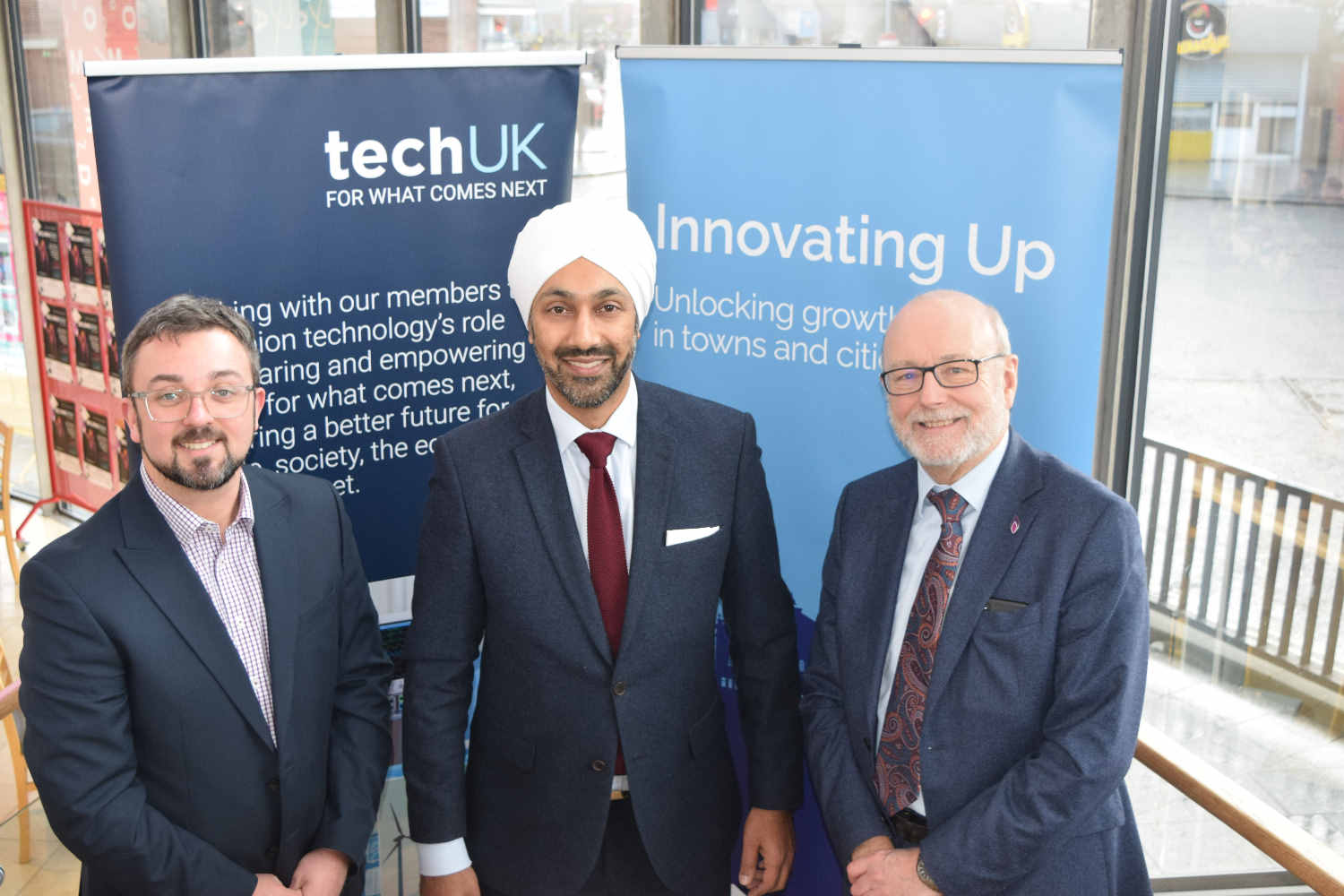The first priority for the new Innovation Secretary? How £20 billion should be spent in UK towns and cities like Stockton to develop local digital skills and economic growth
At a Glance
The creation of a Department for Science, Innovation and Technology might just provide the biggest boost to the Levelling Up agenda since, well, the Department for Levelling Up.
Led by Michelle Donelan MP, the new Department is tasked with harnessing the power of innovation to deliver tangible benefits for communities across the UK – creating better public services, skilled jobs and economic growth
5 Minute Read
The Department will not be short of backing from the highest level of Government, coming hot on the heels of a pledge by Jeremy Hunt to make the UK the “world’s next Silicon Valley” and a New Year pledge by the Prime Minister to increase public funding in R&D to £20 billion and put innovation at the heart of Government economic policy.
As the Prime Minister said, innovation is not “gadgets and geekery” – it has the potential to transform the delivery of public services and private business, bringing with it skilled jobs, growth and societal change.
Providing funding is only half the solution: it’s how we spend it that matters, and that must be the first job at the top of the new Secretary of State’s in-tray.
That £20 billion needs to find its way to towns and cities around the UK and be invested to help tackle local challenges that stand in the way of growth, and to enable everyone to be a part of a digital society.
It needs to find its way to towns like Stockton-on-Tees, where Atos employs several hundred people and where everyone is looking for ways to improve productivity and unlock the rich potential of the area.
A fortnight ago, techUK and local MP Alex Cunningham joined me to host a roundtable for local government, educational institutions and large employers, both public and private, to talk about digital skills.
The enthusiasm for Stockton was obvious, as was the appetite to work together to support crucial initiatives which will help make the Government’s vision of Levelling Up a reality – initiatives like reskilling of the workforce and the creation of a digital vision for the town. But speaking to local businesses and policymakers, two challenges were clear.
Firstly, the need to maximise and retain more of the region’s talented people. The North East has a very well developed higher education system, but too many graduates leave after university. A better system for connecting skilled individuals with local opportunities could help the region capitalise more on its untapped potential.
And secondly, the need for co-ordination between public and private sectors ensuring that investment genuinely meets local needs. Businesses and local authorities have launched a wealth of individual initiatives, but these must be brought together under a single strategy for the region, overseen by a public body which is accountable for making it happen.
These are the sorts of discussions that the new Department needs to encourage in every part of the country. Levelling up is top of the agenda for both parties as Labour too has put digital skills and regional development at the heart of their agenda ahead of the next General Election.
High-level commitments are welcome, but it is only by listening and working with businesses in communities across the UK that we will identify local based solutions to local problems.
That’s why Atos has partnered with techUK to help identify the steps we need to take to establish, with local stakeholders, local digital networks which can help solve local issues, and help secure the funding to make it happen.
Key Takeaway
The new Department for Science, Innovation and Skills is a big step forward. Now, we need to create, in every community, a digital network of local employers big and small, local, regional and national government, and education providers which can help design and develop place-based solutions to identify and bridge the digital skills gap the country faces. This must be supported by a place-based organisation to bring us all together and drive the agenda.
This will take time and commitment. The solutions for Stockton and Stockport may be more different than their names suggest. But a renewed focus on innovation in Whitehall, coupled with genuine engagement at a local level, is our best chance yet to develop real, place-based solutions that will help deliver the skilled jobs of the future, right across the UK.
Innovating Up – Further Insights
From across Atos and beyond, find out more about digital transformation, jobs of the future and skills






